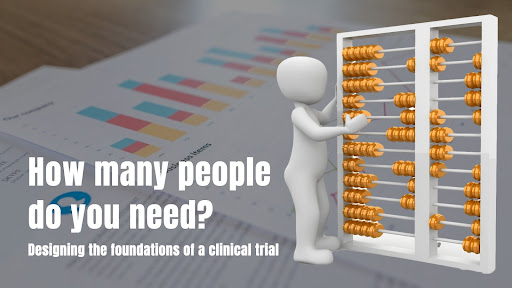The Australian Advantage: Benefits of Running Clinical Research Down Under

Australia has fast established itself as a high-quality, clinical trial friendly location. Even a small amount of research will immediately reveal the many advantages that Australia provides, in such a way that can uniquely support your research. As a result, the initial hesitation that some overseas sponsors may feel due to the geographic isolation of Australia will quickly dissipate. A favourable exchange rate, tax benefits, an efficient regulatory system, a culturally diverse but a geographically centralised population, high climate variation and reversed seasons are just some of the reasons why you should consider running clinical trials in Australia. Read on to find out how you can take advantage of the unique benefits associated with Australian clinical research, saving you significant amounts of time and money!
Generous government tax incentives for foreign sponsors
Research & Development tax incentives offered by the government actively encourage overseas sponsors to conduct research in Australia. These incentives have also made it attractive for global companies to access Australian research facilities, as holding the intellectual property within Australia is not mandatory. Sponsors wishing to be eligible for this benefit can either establish an affiliate company in Australia (which may take from 1 week to 1 month) or choose a Contract Research Organisation (CRO) to act on their behalf. Non-Australian Sponsors should consider these options and how they can impact on eligibility for the 43.5% R&D tax incentive provided by the Australian government before proceeding. An important consideration is that your aggregated, annual turnover needs to be less than $20 million (AUD) per annum to be eligible (read more here).
This incentive can give a massive cash back for eligible activities, including clinical trial research, of course. When you also consider the very favourable exchange rate between AUD to USD or Euro (0.73 and 0.69 respectively, current as of November, 2016), this all but ensures that in the long run you should save a considerable amount of money by running clinical trials in Australia. And of course, once the Australian legal entity has been established, it primes you to quickly initiate future clinical trials at a competitive cost.
Seasonal differences to the USA and Europe
Australia’s seasonal differences from the northern hemisphere allow researchers to cover seasonal variations in patient recruitment. By conducting a global clinical trial, any data bias associated with a single season trial can be better controlled. One must account for variations in temperature, rainfall, humidity, plant, and animal activity. These factors can contribute to shifting incidence rates of various diseases (particularly allergy related) which may otherwise convolute the results of the trial, and may also affect participant recruitment.
Wait times are also lessened when wanting to initiate clinical trials for treatments of seasonal illnesses. Trials for influenza vaccines or allergy medications, which are usually conducted during the seasons where the incidence rate is the highest, can now be conducted all year round if a sponsor is willing to run trials at sites in both the northern and southern hemispheres. In a press release, Stanley Erck, CEO of biopharmaceutical company Novavax emphasised that a quicker assessment of their new vaccine could be achieved by conducting a clinical trial Australia. In doing so, it was evaluated without waiting for the end of influenza transmission in the northern hemisphere.
A modern, efficient regulatory system
There are other reasons why Australia continues to be the location of choice for those seeking to run a clinical trial. Australia’s efficient and practical regulatory framework ensures that lengthy reviews do not slow timelines for critical early phase research. For most studies, you make a submission to the Human Research Ethics Committee (HREC) of your choice, depending upon the Investigator site you select. After this is approved, you notify Australia’s regulatory agency, the Therapeutic Goods Administration (TGA), via the Clinical Trial Notification (CTN) scheme. Overall, this is a fast process: you often receive acknowledgement from TGA usually within a week confirming that ethical review has been finalized and the trial can commence.
The TGA’s introduction of the CTN scheme spurred Australia into position as a preferred destination for conducting Phase I clinical trials. A streamlined digital system for CTN has recently replaced the cumbersome paper-based CTN form process, allowing you to track and edit your submission online. There are many, many benefits associated with this new method, and this is evidenced by the number of trials conducted before and after the CTN was introduced. Pre-CTN, the average number of annual clinical trial submissions was 50, but post-CTN this number soared to approximately 700 per year! For Phase I studies in particular, no IND submission is required in Australia (more details here). Not only does this mean that trials can be initiated more quickly here, the data gathered can be used to support marketing applications in the US and Europe.
Ethnically diverse populations
Australia is well-suited to conducting ethnic bridging trials, due to the diverse demographics of the Australian population. While the majority of Australians are of Anglo and/or European descent, there exists a large Asian population who are concentrated mainly within our major cities. For example the proportions of people of Asian descent within Sydney and Melbourne, Australia’s two biggest cities, are approximately 18 to 19%. As the pharmaceutical market in Asia is already big and growing rapidly, bridging studies are becoming increasingly attractive to sponsors looking to expand internationally. Thus, a sponsor wanting to reduce the time it usually takes for a new drug to be approved within Asian markets can perform bridging studies within Australia. The benefits of this are twofold: while you have access to a significant Asian population, you are still able to use all your English-language resources!
Australians in general enjoy high levels of health when compared with the rest of the world, making it a perfect place to conduct Phase I trials. Furthermore, incidence rates of diseases in Australia differ from those in the US and EU. A list of chronic disease incidence in Australia indicates that the diseases with the highest proportions are, in order from highest to lowest: arthritis, back pain, hypertension, asthma, diabetes, and lipid disorders.
International-quality research environment
As part of the Therapeutic Goods Act 1989, any clinical research performed in Australia must, by law, adhere to Good Clinical Practice (GCP) specifications. The clinical trial handbook developed by the Australian government describes in-depth what is required for clinical research in Australia. Clinical data originating in Australia is readily accepted by international regulatory agencies, such as the European Medicines Agency (EMA) and the U.S. Food and Drug Administration (FDA). Sites and CROs are well aware of local and international standards and conventions, and as such provide a high standard of research services.
Excellent Phase I facilities with well developed IT infrastructure exist all over Australia. Hospitals, universities, specialised research institutes and clinics all make significant contributions to clinical trial research. Collaboration with these facilities and with CROs is easily achieved through online conferencing and correspondence with local representatives. Furthermore, gathered data can be managed using electronic case report forms (eCRFs). Online eCRF systems like Merge Healthcare’s eClinicalOS are location agnostic: anyone from anywhere in the world can use the same system for ease of data collection, randomisation, investigational product dispensing, monitoring, safety alerts and uploads of data.
Summary
There are a wealth of economic and practical benefits to carrying out Phase I-IV clinical trials in Australia. Sponsors worldwide are taking advantage of Australia’s beneficial environment, with the help of friendly, local organisations. Datapharm Australia in particular enjoys working with early phase clinical development start ups and established companies alike, solving any problems and challenges that may arise. If you have any further questions or would simply like to know more about running a clinical trial in Australia, have a look at the e-book that we have developed, or get in touch with us today!
Disclaimer: The taxation and legal advice given here are general in nature only. Before acting on this information, seek professional advice specific to your current situation.


